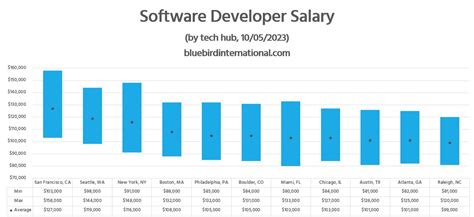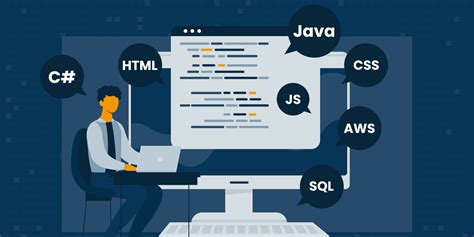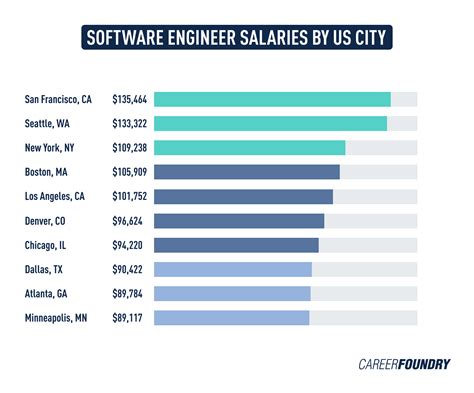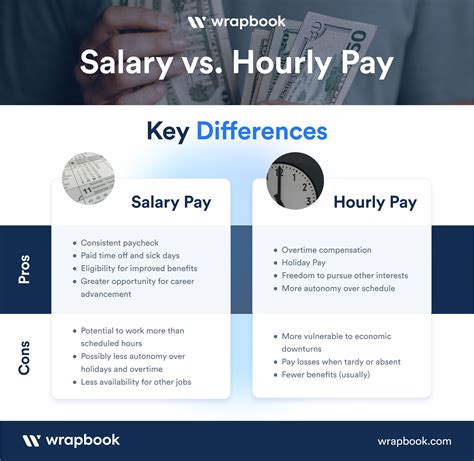Software Developer Salary: A Comprehensive Guide for 2024 (Salaried vs. Hourly Roles)

Deciding on a career in software development opens a world of opportunity, marked by innovation, problem-solving, and significant earning potential. Whether you're a student mapping out your future or a professional considering a switch, understanding the financial landscape is crucial. This guide breaks down software developer salaries, the key factors that dictate your pay, and the promising outlook for this dynamic field.
What Does a Software Developer Do?

At its core, a software developer is a creative problem-solver who uses programming languages to design, build, and maintain the applications and systems that power our digital world. Their work is everywhere: the mobile apps on your phone, the e-commerce websites you shop on, the operating systems that run your computers, and the complex data systems that drive business decisions.
Responsibilities typically include:
- Collaborating with designers, product managers, and other stakeholders to understand user needs.
- Writing clean, efficient, and well-documented code.
- Testing and debugging software to ensure it's stable and secure.
- Updating and maintaining existing programs to adapt to new technologies and business requirements.
- Architecting and designing software systems from the ground up.
Average Software Developer Salary

The compensation for software developers is highly competitive, reflecting the strong demand for their skills.
According to the U.S. Bureau of Labor Statistics (BLS), the median annual wage for software developers was $132,270 as of May 2023. This is the midpoint, meaning half of the developers earned more than this, and half earned less.
The salary range is quite broad, illustrating the potential for growth:
- Lowest 10%: Earned less than $73,140 (typical for entry-level positions).
- Highest 10%: Earned more than $210,030 (typical for senior, lead, or highly specialized roles).
Data from salary aggregators provides a similar, real-time perspective. As of late 2023, Payscale reports an average base salary of around $83,000 for a Software Developer, with a range from $60k to $119k, while Glassdoor reports a total pay average of approximately $107,000. These differences often reflect the inclusion of bonuses and other compensation, as well as different data collection methodologies.
Key Factors That Influence Salary

Your specific salary is not a single number but a result of several interconnected factors. Understanding these variables is key to maximizing your earning potential.
### Level of Education
While a formal degree isn't the only path into software development, it often sets the initial salary benchmark. A Bachelor's degree in Computer Science or a related field is the most common educational background and is typically required by larger corporations. Professionals with a Master's degree or Ph.D., especially in specialized areas like Artificial Intelligence or Machine Learning, can command significantly higher starting salaries and are sought after for research and advanced development roles. Graduates of coding bootcamps or self-taught developers can also secure high-paying jobs, though their earning power is most directly tied to the strength of their portfolio and subsequent years of experience.
### Years of Experience
Experience is arguably the most significant driver of salary growth in software development. Compensation scales predictably with time in the field:
- Entry-Level (0-2 years): Typically earn in the range of $70,000 to $95,000. The focus at this stage is on learning, contributing to existing codebases, and building foundational skills.
- Mid-Level (3-7 years): With proven skills and the ability to work more independently, mid-level developers can expect to earn between $95,000 and $140,000. They often take ownership of features or smaller projects.
- Senior/Lead (8+ years): Senior developers, staff engineers, and architects who lead projects, mentor junior developers, and make high-level design decisions represent the top earners. Their salaries frequently exceed $150,000, with top talent at major tech firms earning well over $200,000 annually with base pay, bonuses, and stock options.
### Geographic Location
Where you work has a massive impact on your paycheck. Tech hubs with a high concentration of companies and a higher cost of living offer the most lucrative salaries.
- Top-Tier Tech Hubs: Cities like San Jose/San Francisco Bay Area, Seattle, and New York City consistently offer the highest salaries to remain competitive, often with averages exceeding $150,000.
- Growing Tech Centers: Locations like Austin, TX; Denver, CO; and Boston, MA also offer strong salaries that are well above the national average.
- Remote Work: The rise of remote work has changed the landscape, allowing developers in lower-cost-of-living areas to access higher-paying jobs. However, many companies still adjust salary bands based on the employee's location.
### Company Type
The type of company you work for is a major determinant of your compensation structure.
- Big Tech (FAANG/MAMAA): Companies like Google, Meta, Apple, Amazon, and Microsoft are known for offering top-tier compensation packages that include a high base salary, annual bonuses, and substantial stock grants (RSUs).
- Startups: Early-stage startups may offer a lower base salary but compensate with potentially valuable stock options. This is a higher-risk, higher-reward scenario that bets on the company's future success.
- Established Non-Tech Companies: Nearly every industry needs developers. Working for a large bank, retailer, or healthcare provider can provide a competitive salary and excellent job stability, though the compensation may not reach the peaks of Big Tech.
- Contract/Freelance (Hourly): Many developers work on a contract basis, charging an hourly rate. These rates can range from $75 to over $200 per hour, depending on specialization and experience. While this offers flexibility and high earning potential, it does not include benefits like paid time off, health insurance, or retirement contributions, which must be managed by the individual.
### Area of Specialization
All software development is not created equal. Specializing in a high-demand, complex niche can dramatically increase your value.
- Highest Paying Specializations: Fields like Artificial Intelligence/Machine Learning, Cybersecurity, Cloud Computing/DevOps, and Big Data consistently command the highest salaries due to a shortage of expert talent.
- Core Specializations: Back-end, Front-end, and Full-stack development remain in high demand with strong, competitive salaries.
- Mobile Development: Expertise in iOS (Swift) or Android (Kotlin/Java) also leads to excellent compensation, driven by the ever-growing app economy.
Job Outlook

The future for software developers is exceptionally bright. The BLS projects employment for software developers to grow by 25 percent from 2022 to 2032, which is classified as "much faster than the average for all occupations."
This translates to about 153,900 openings for software developers projected each year, on average, over the decade. This sustained demand is fueled by the continuous need for new mobile applications, the expansion of the Internet of Things (IoT), and the increasing importance of software in business operations, healthcare, and scientific research.
Conclusion

A career as a software developer offers a rewarding path with outstanding salary potential and a secure job outlook. Your earnings will be a dynamic figure, influenced by your continuous learning, the experience you gain, your chosen location, and the specialized skills you cultivate.
For those considering this career, the data is clear: the demand for talented developers is high, and the financial rewards can be substantial. By focusing on building a strong skill set and strategically navigating the factors outlined above, you can build a fulfilling and lucrative career shaping the technology of tomorrow.
